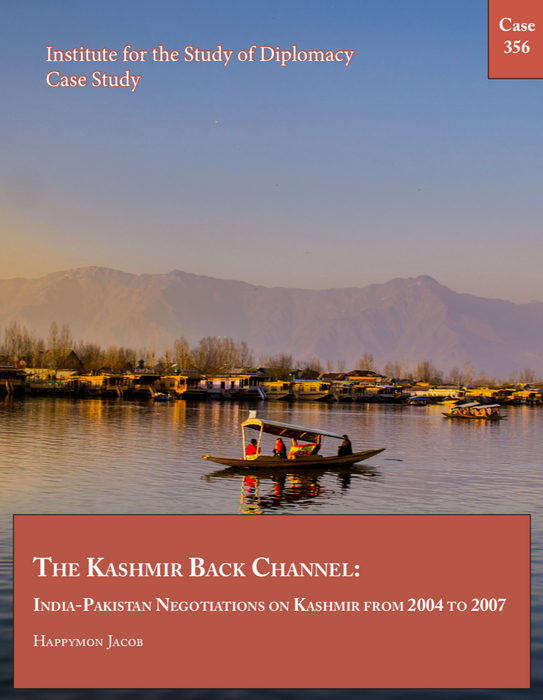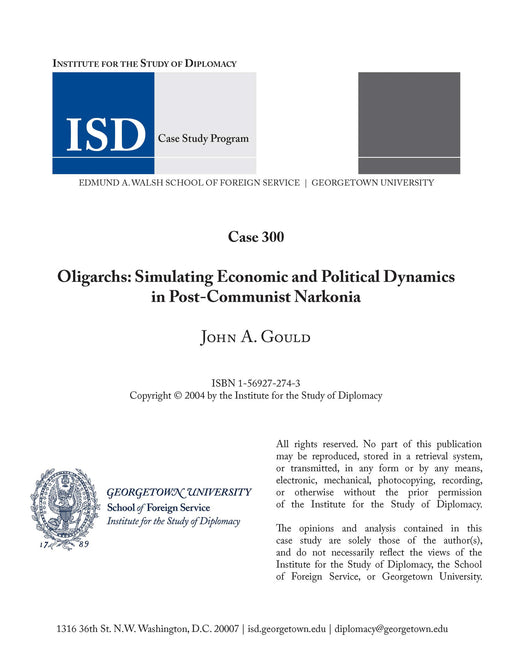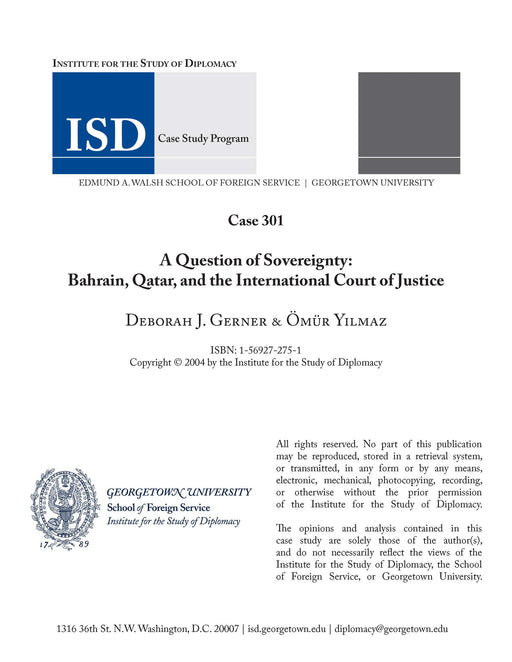Case 356 - The Kashmir Back Channel: India-Pakistan Negotiations on Kashmir from 2004 to 2007
by Institute for the Study of Diplomacy at Georgetown University
$ 4.50
Happymon Jacob
In early 2007, Indian and Pakistani back-channel interlocutors, appointed by the respective heads of government, were preparing to finalize a secret deal to resolve their dispute over Kashmir. Had the negotiators managed to finalize a deal, the two counties would have signed it in a public ceremony. Such a deal could have brought the decades-long Kashmir conflict to a peaceful end. However, the deal, which was confidentially negotiated in secret third country locations for a period of close to three years, was neither finalized nor signed due to domestic political upheaval in Pakistan. Successive governments in Pakistan tried to continue the negotiations with the Indian government to complete the agreement, but those attempts did not succeed. This was the first time India and Pakistan had engaged in a serious, sustained and structured back-channel negotiation to resolve the most severe conflict between them.
This case study provides deeper insights into the conflict dynamics between India and Pakistan and the progress of the negotiations themselves.
The case begins with an introduction to the back channel that began in 2004. The background highlights, among other issues, the spike in violence that preceded the negotiations and the pre-negotiations conducted by the two sides through 2003 and early 2004. In 2004, the Indian government leading the talks with Pakistan lost the national elections. However, the incoming government led by the opposition party was willing and able to continue the process with Pakistan. The post 9/11 global context also created a conducive atmosphere for the two sides to find an amicable solution to the Kashmir conflict given the U.S. goal to enlist Pakistan’s support in its fight against terrorism—Washington did not want the India-Pakistan standoff on Kashmir to be a distraction in its War on Terror.
This case study seeks to highlight how the political context emerged for the Kashmir negotiations, how political leaders on both sides established the back-channel, how it worked, how negotiators arrived at the agreement, and the circumstances that stopped the final ratification and implementation of the agreement. It is unclear whether the deal would have been implemented had it been adopted, and whether it would have been sustainable had it been implemented over the long term.
Listen to a conversation with Happymon Jacob and case study author Rick Moss on back-channel diplomacy: https://www.youtube.com/watch?v=vYpXIKKAonQ



